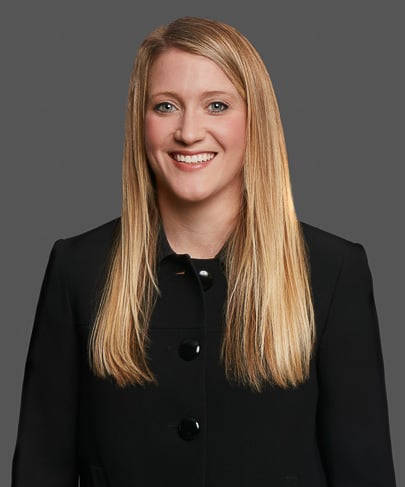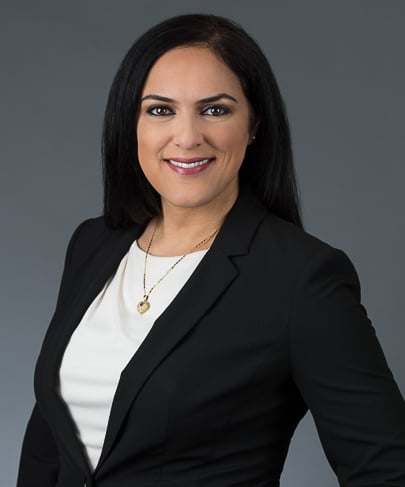State Department Updates Policy Guidance Regarding F-1 Student Visa Applications
Click “Subscribe Now” to get attorney insights on the latest developments in a range of services and industries.
On August 8, 2017, the Department of State (DOS) updated its Foreign Affairs Manual (FAM)1 to modify instructions to consular officers considering F-1 student visas. The modified instructions address how a consular officer should determine whether an F-1 visa applicant intends to depart the United States following completion of her or her study. This change appears to be another product of the Administration’s “Buy American, Hire American” executive order aimed at protecting and favoring U.S. workers over foreign workers, and will likely result in additional questioning relating to a student’s post-graduation plans and heightened evidentiary requirements to determine an F-1 visa applicant’s ties to his or her home country.
What are the legal requirements for an F-1 student with regard to intent and maintaining a foreign residence?
The Immigration and Nationality Act, as amended, requires an F-1 student to maintain a foreign residence abroad,2 and the regulations require that the applicant intend to depart the U.S. upon termination of his or her student status.3 A consular officer must be satisfied that the applicant, at the time of the visa application:
- Has a residence abroad;
- Has no immediate intention of abandoning that residence; and
- Intends to depart from the United States upon completion of approved activities.4
How must a consular officer determine whether the F-1 visa applicant meets this foreign residence requirement?
The revised guidance at 9 FAM 402.5-5(E)-(1) provides, in relevant part (emphasis added):
b. (U) Examining Residence Abroad: General rules for examining residence abroad are outlined in 9 FAM 401.1-3(F)(2). If you are not satisfied that the applicant’s present intent is to depart the United States at the conclusion of his or her study or OPT, you must refuse the visa under INA 214(b). To evaluate this, you should assess the applicant’s current plans following completion of his or her study or OPT. The hypothetical possibility that the applicant may apply to change or adjust status in the United States in the future is not a basis to refuse a visa application if you are satisfied that the applicant’s present intent is to depart at the conclusion of his or her study or OPT.
The old guidance at 9 FAM 402.5-5(E)-(1) read, in relevant part (emphasis added):
b. The context of the residence abroad requirement for student visas inherently differs from the context for B visitor visas or other short-term visas. The statute clearly presupposes that the natural circumstances and conditions of being a student do not disqualify that applicant from obtaining a student visa. It is natural that the student does not possess ties of property, employment, family obligation, and continuity of life typical of B visa applicants. These ties are typically weakly held by student applicants, as the student is often single, unemployed, without property, and is at the stage in life of deciding and developing his or her future plans. Student visa adjudication is made more complex by the fact that students typically stay in the United States longer than do many other nonimmigrant visitors. (See 9 FAM 401.1-3(F).)
c. The residence abroad requirement for a student should therefore not be exclusively connected to ties. You must focus on the student applicant’s immediate intent. Another aspect to consider: students typical youth often means they do not necessarily have a long-range plan, and hence are relatively less likely to have formed an intent to abandon their homes. Nonetheless, you must be satisfied at the time of application for a visa that the visa applicant possesses the present intent to depart the United States at the conclusion of his or her approved activities. That this intention is subject to change or even likely to change is not a sufficient reason to deny a visa.
So, what has changed?
While any change to the statute or regulations would require either legislation or formal rulemaking, DOS has a great deal of discretionary authority as to the policies and procedures it employs when processing visa applications.
Noticeably absent in the revised FAM provision are qualifying provisions that allow for some leniency when determining the student’s intent, since students are often too young to have formulated a long-term life plan or to have established strong financial or property ties to their home country. Instead, these provisions have been replaced by a directive requiring consular officers to “assess the applicant’s current plans following completion of his or her study or OPT.” In other words, consular officers are directed to place emphasis on the student’s post-graduation plans, presumably to determine if the student is using his or her period of study in the U.S. as a stepping stone to apply for employment with a U.S. employer at the conclusion of his or her studies. The revised FAM provision does include guidance that a “hypothetical possibility” that the individual may change or adjust status does not justify a visa refusal.
Thus, the replacement of statements acknowledging that students are generally young and without strong ties with clear instructions to assess the student’s future plans suggests that DOS officers may be interpreting the law more rigidly than they have in the past.
What should F-1 students expect?
Students applying for F-1 visas should expect the following:
- Additional questioning regarding long-term intent. Students for whom nonimmigrant petitions have been filed should expect increased scrutiny. Students who are working on OPT should also expect greater scrutiny.
- Increased scrutiny as to ties abroad. Students should be prepared to present stronger ties to their home countries. The longer the absence from the student’s home country, often the more tenuous the ties become. It is not enough to simply provide an address of a relative and state an intention to return there upon completion of study.
The new rule refers applicants to the general FAM provision at 9 FAM 401.1-3(F)(2), which states that the burden is on the visa applicant to demonstrate permanent employment, meaningful business or financial connections, close family ties, or social or cultural associations to the country in which the applicant plans to return. A student will not likely have a permanent offer of employment or any meaningful business or financial connections, so having family ties and being able to clearly articulate and explain why he or she plans to depart the U.S. are key. Each individual’s particular situation is different, but some examples of evidence might include bank statements, proof of family property ownership, proof of family business holdings, etc.
What do I as an employer or F-1 sponsor need to do?
Companies employing F-1 students on OPT as well as universities, colleges, schools, and other institutions sponsoring F-1 visas should make sure that F-1 students are aware of the restrictions on their stay. A visa application is not merely a formality; it is a legal process with long term implications. While an F-1 student may desire a career in the U.S., the student’s intention must be to study and/or gain practical experience while he or she is in F-1 status. Intent can and does change, however, so an employer who files a nonimmigrant petition to authorize employment of the F-1 student in a different nonimmigrant category should expect that the student may have some international travel restrictions post-filing.
1 The FAM is the agency’s authoritative guidebook conveying the DOS structures, policies, and procedures in order to assist DOS staff and contractors in carrying out their various responsibilities.
2 INA § 101(a)(15)(F)(i).
3 22 CFR § 41.61(b)(iv).
4 9 FAM 402.5-5(E)(1)(a).
This client alert is published by Dickinson Wright PLLC to inform our clients and friends of important developments in the field of immigration. The content is informational only and does not constitute legal or professional advice. We encourage you to consult a Dickinson Wright attorney if you have specific questions or concerns relating to any of the topics covered here.
DW Immigration: Global Mobility with a Personal Touch!
FOR MORE INFORMATION CONTACT:
Heather L. Frayre is Of Counsel in Dickinson Wright’s El Paso office. She can be reached at 915.541.9370 or hfrayre@dickinsonwright.com.
Lisa D. Duran is a Member in Dickinson Wright’s Phoenix office. She can be reached at 602.285.5032 or lduran@dickinsonwright.com.
Elise S. Levasseur is a Member in Dickinson Wright’s Troy office. She can be reached at 248.433.7520 or elevasseur@dickinsonwright.com.
Kathleen Campbell Walker is a Member in Dickinson Wright’s El Paso office. She can be reached at 915.541.9360 or kwalker@dickinsonwright.com.
Kevin J. Weber is a Partner in Dickinson Wright’s Toronto office. He can be reached at 416.367.0899 or kweber@dickinsonwright.com.
Christian S. Allen is Of Counsel in Dickinson Wright’s Troy office. He can be reached at 248.433.7299 or callen@dickinsonwright.com.
Suzanne K. Sukkar is Of Counsel in Dickinson Wright’s Ann Arbor office. She can be reached at 734.623.1694 or ssukkar@dickinsonwright.com.
Related Practices
Contacts
Recent Insights
- Industry Alerts Pause in Immigrant Visa Processing Imposed by Presidential Proclamation - Effective April 23 for Sixty Days at Consular Posts
- Industry Alerts The IRS and the FICA, FUTA and Federal Income Tax Traps for Employers with Non-Resident Alien Employees
- Industry Alerts Canada, Cannabis, and Crossing the Continent: Considerations for Canada-U.S. Companies, Business Travelers, and Investors
- March 11, 2025 Media Mentions Kathleen Campbell Walker was recently quoted in the Newsweek article, “What to Know About the H-1B Program: Pros, Cons and Hiring Alternatives.”
- March 11, 2025 In the News Three Dickinson Wright Lawyers Recognized in Chambers Global Guide 2025
- March 03, 2025 Media Mentions Kathleen Campbell Walker was recently quoted in the Snopes article, “Unpacking Trump Admin's Claim That 'All' Undocumented Immigrants Are Criminals.”
- February 04, 2025 Industry Alerts Protecting Students and Schools: Guidance on Federal Agent Presence
- January 28, 2025 Media Mentions Najah Allaham’s article titled “International talent as a solution for hospitality staffing” was recently published by Today’s Hotelier.
- January 10, 2025 Media Mentions Kenneth Harder was recently featured in the Law360 article, “Jackson Immigration Ace Jumps To Dickinson Wright,”





